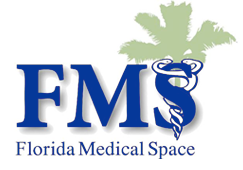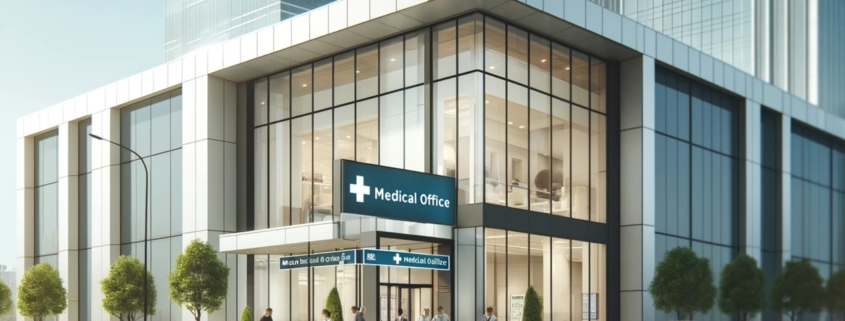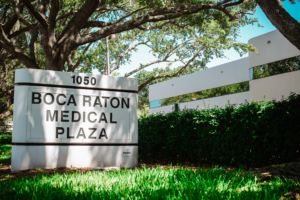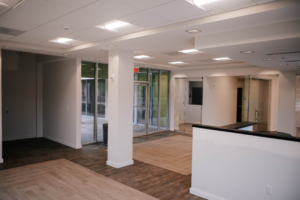Medical real estate remains a stronghold of stability and growth in an otherwise fluctuating commercial real estate market, but what factors contribute to its robust nature? This article explores the factors contributing to the stability and growth of medical real estate and explore The Resilience of Medical Real Estate Amid Commercial Declines. By the end, you’ll understand the unique dynamics that make medical real estate a compelling investment and essential asset.
The Unique Nature of Medical Real Estate
Medical real estate differs significantly from other commercial properties. It involves spaces tailored specifically for healthcare services, such as hospitals, clinics, and medical office spaces. These properties are designed with specialized infrastructure to support medical equipment, patient care areas, and compliance with stringent health regulations.
“Nothing is recession-proof, but healthcare real estate is one of the most recession-resistant sectors in the industry,” notes Luke Nill, a seasoned healthcare real estate expert.
Why Does This Matter?
Consider medical office space as the sturdy backbone of healthcare delivery. Just as the human spine supports the body, these spaces support the critical operations of healthcare providers. These properties often include advanced air filtration systems, specialized electrical circuits for medical equipment, and layouts designed for optimal patient flow and accessibility. Without them, the healthcare system would lack the necessary foundation to function effectively.
________________________________________
High Demand for Healthcare Services
According to the Centers for Disease Control and Prevention, the aging baby boomer generation is projected to significantly increase demand for medical services over the next decade. The demand for healthcare services is a constant, driven by an aging population, increased chronic disease prevalence, and advancements in medical treatments. Unlike other commercial sectors, healthcare is a necessity, not a luxury.
The Aging Population
As the baby boomer generation ages, the need for medical services rises. This demographic shift ensures a steady demand for medical office spaces, as older adults require more frequent and varied medical care.
Chronic Diseases and Medical Advances
The rise in chronic diseases, such as diabetes and heart disease, further fuels the demand for continuous healthcare services. Additionally, advancements in medical technology mean more people are receiving treatments that were previously unavailable, requiring specialized facilities.
________________________________________
Long-Term Leases and Stability
Medical real estate benefits from long-term leases, often ranging from 10 to 20 years. Healthcare providers invest heavily in customizing their spaces, which discourages frequent relocations. This long-term commitment translates into stability for property owners.
Tenant Retention
Healthcare providers value stability due to the high costs and regulatory requirements of moving. This results in lower vacancy rates and more predictable income for landlords, unlike other commercial properties where turnover can be high.
Predictable Income
Long-term leases mean predictable income streams, making medical real estate a less volatile investment. In uncertain economic times, this predictability is particularly valuable.
________________________________________
Location and Accessibility
Location is a critical factor in the success of medical real estate. Proximity to hospitals, ease of access for patients, and availability of public transportation are key considerations.
Proximity to Hospitals
Being close to hospitals enhances collaboration and referral opportunities. Medical office spaces near hospitals are highly sought after for the convenience they offer both patients and healthcare providers.
Accessibility for Patients
Easy access to medical facilities is crucial for patient care. Locations with good transportation links and ample parking are more attractive to patients, enhancing the desirability of these properties.
________________________________________
Technological Advancements in Healthcare
Technological advancements in healthcare have a direct impact on medical real estate. The need for spaces that can accommodate cutting-edge medical technology drives the demand for modern, adaptable facilities.
Telemedicine
The rise of telemedicine has increased the need for spaces equipped with advanced communication technologies. Medical office spaces that can support telemedicine services are in high demand.
Specialized Medical Equipment
As medical equipment becomes more sophisticated, the need for spaces that can house such equipment grows. Properties that can support the latest medical technologies attract high-value tenants.
________________________________________
Government and Policy Support
Government policies and support play a significant role in the resilience of medical real estate. Regulations often require healthcare providers to maintain certain standards, ensuring ongoing demand for compliant spaces.
Healthcare Regulations
Strict healthcare regulations necessitate specialized facilities. This regulatory environment creates a stable demand for medical office spaces that meet these standards.
Policy Initiatives
Government initiatives aimed at expanding healthcare access further boost the demand for medical real estate. Policies that support the construction and renovation of medical facilities benefit this sector.
________________________________________
Investment Opportunities in Medical Real Estate
Investing in medical real estate offers unique opportunities. The stability and growth potential make it an attractive option for investors looking for reliable returns.
REITs and Direct Investments
Real Estate Investment Trusts (REITs) focused on healthcare properties provide a way for investors to gain exposure to this resilient sector. Direct investments in medical office spaces also offer substantial returns due to the steady demand.
Portfolio Diversification
Including medical real estate in an investment portfolio adds a layer of diversification. This sector’s stability can offset the volatility of other investments, providing a balanced portfolio.
________________________________________
Comparing Medical Real Estate to Other Commercial Sectors
How does medical real estate stack up against other commercial sectors?
The resilience of medical real estate becomes clear when compared to the challenges faced by retail, office, and industrial real estate.
Retail Real Estate
Retail real estate has been hit hard by the rise of e-commerce. Many traditional retail spaces struggle with vacancies and declining rents. In contrast, medical office spaces remain in demand due to the essential nature of healthcare services.
Office Real Estate
The shift to remote work has decreased the demand for traditional office spaces. However, medical office spaces continue to be vital, as healthcare services cannot be delivered remotely to the same extent.
Industrial Real Estate
While industrial real estate has seen growth due to increased e-commerce, it still faces challenges related to supply chain disruptions and changing logistics needs. Medical real estate’s demand remains more predictable and stable.
________________________________________
Case Studies of Successful Medical Real Estate Projects
Examining successful medical real estate projects provides insights into the factors contributing to their success. These case studies highlight innovative approaches and strategic decisions.
Case Study 1: Boca Medical Plaza
Overview
Located in close proximity to the prestigious Boca Raton Regional Hospital, which is currently undergoing a significant expansion, Boca Medical Plaza represents a unique opportunity in medical real estate. This fully built-out medical practice offers unparalleled access to a high-traffic healthcare hub, making it an ideal location for medical professionals looking to capitalize on visibility and patient referrals.
Key Benefits:
Enhanced Visibility: Situated near a major healthcare institution, the plaza ensures high visibility to both potential patients and professional peers.
Seamless Patient Referrals: The close proximity to Boca Raton Regional Hospital facilitates a seamless referral process, allowing for an efficient patient transfer and collaboration between medical professionals.
Comprehensive Care Opportunities: With its strategic location, practitioners at Boca Medical Plaza can ensure their patients receive comprehensive and timely medical care, leveraging the advanced facilities and services of the nearby hospital.
Conclusion:
Boca Medical Access Plaza stands out as a prime location for medical practitioners aiming to enhance their practice’s exposure and patient care capabilities. The facility offers a rare combination of strategic location and fully equipped spaces designed to meet the needs of a dynamic medical community.
Case Study: Prime Medical Office in Pompano Beach, Florida
Overview:
Situated within a five-mile radius of three major hospitals in Pompano Beach, Florida, this prime medical office offers a strategic location that ensures practitioners can maximize their practice’s visibility and operational efficiency. The facility is ideally positioned to benefit from the high patient traffic and professional networking opportunities associated with nearby healthcare institutions.
Key Benefits:
Enhanced Visibility: The office’s proximity to major medical centers increases its exposure to potential patients and healthcare professionals, boosting the practice’s profile within the local medical community.
Efficient Patient Referrals: Located near several key hospitals, the office facilitates a smooth referral process, enabling quick and efficient patient transfers and enhanced collaborative care opportunities.
Exceptional Patient Care: The strategic location allows healthcare providers to offer their patients prompt, exceptional care, with reduced travel times and access to a wide range of medical services.
Conclusion:
The medical office in Pompano Beach presents an exceptional opportunity for medical professionals seeking to establish or expand their practice. With its prime location near multiple hospitals and well-equipped facilities, it is perfectly suited to enhance visibility, improve patient care, and foster professional collaborations in a thriving medical hub.
________________________________________
Future Trends in Medical Real Estate
Looking ahead, several trends are likely to shape the future of medical real estate. Staying informed about these trends can help investors and developers make strategic decisions.
Integrated Healthcare Facilities
The future points towards integrated healthcare facilities that offer a range of services under one roof. These facilities improve patient convenience and streamline operations for healthcare providers.
Sustainable and Green Buildings
Sustainability is becoming increasingly important in all real estate sectors, including medical real estate. Green buildings that reduce environmental impact and operating costs are likely to attract both tenants and investors.
Technological Integration
The integration of advanced technologies, from telemedicine to AI-driven diagnostics, will continue to shape medical real estate. Properties that can accommodate these technologies will be in high demand.
________________________________________
Conclusion
Medical real estate’s resilience amid the broader commercial real estate declines is a testament to its unique characteristics and essential role in society. The constant demand for healthcare services, long-term leases, strategic locations, technological advancements, and supportive government policies all contribute to this sector’s stability. For investors and real estate enthusiasts, medical real estate offers a compelling opportunity to achieve reliable returns and portfolio diversification.
________________________________________
Frequently Asked Questions (FAQs)
1. Why is medical real estate more resilient than other commercial real estate sectors?
Medical real estate is more resilient due to the constant demand for healthcare services, long-term leases, and the essential nature of healthcare facilities. These factors create stable and predictable income streams.
2. What makes medical office space a good investment?
Medical office spaces are a good investment because they offer long-term leases, lower vacancy rates, and consistent demand from healthcare providers who require specialized facilities.
3. How does the aging population impact medical real estate?
The aging population increases the demand for healthcare services, leading to a higher need for medical office spaces and other healthcare facilities. This demographic trend ensures sustained demand for medical real estate.
4. What role do technological advancements play in medical real estate?
Technological advancements drive the need for modern and adaptable medical facilities that can accommodate new medical equipment and telemedicine services. Properties that integrate these technologies attract high-value tenants.
5. Are there specific locations that are better for investing in medical real estate?
Locations near hospitals, with good accessibility and transportation links, are ideal for investing in medical real estate. These areas attract healthcare providers and patients, ensuring high occupancy rates and stable returns.
Sources:
• American Hospital Association (AHA)
• Information on the aging population and the increasing demand for healthcare services can be found through reports and data provided by the American Hospital Association.
• American Hospital Association
• National Investment Center for Seniors Housing & Care (NIC)
• NIC provides insights into senior housing and care trends, including the impact of an aging population on medical real estate.
• National Investment Center for Seniors Housing & Care
• CBRE (Coldwell Banker Richard Ellis)
• CBRE offers detailed reports and analysis on various aspects of the commercial real estate market, including medical office spaces and their resilience.
• CBRE Healthcare Real Estate
• JLL (Jones Lang LaSalle)
• JLL provides research and insights into healthcare real estate trends, investment opportunities, and the factors contributing to the sector’s stability.
• JLL Healthcare Real Estate
• Kaiser Family Foundation (KFF)
• KFF offers data and analysis on healthcare policies, regulations, and demographic trends impacting healthcare services and facilities.
• Kaiser Family Foundation
• Urban Land Institute (ULI)
• ULI publishes reports on various real estate sectors, including healthcare and medical real estate, offering insights into trends and future outlooks.
• Urban Land Institute
• Healthcare Financial Management Association (HFMA)
• HFMA provides resources and research on the financial aspects of healthcare services and infrastructure, including the role of medical real estate.
• Healthcare Financial Management Association
• PwC Health Research Institute (HRI)
• PwC’s HRI offers analysis on healthcare trends, including technological advancements and their impact on healthcare facilities.
• PwC Health Research Institute





